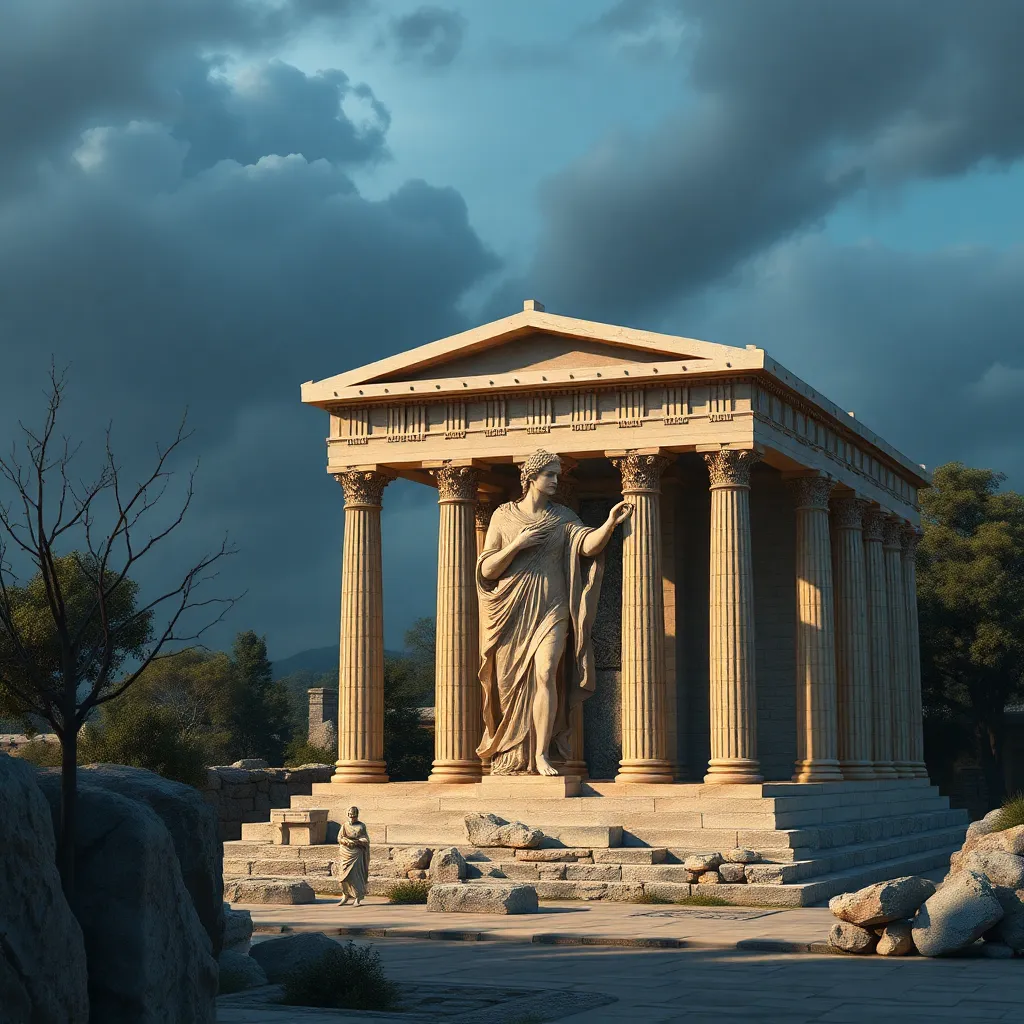The Significance of Hera in the Greek Pantheon
I. Introduction
The Greek pantheon is a rich tapestry of gods and goddesses, each with unique attributes, stories, and significance. Among them, Hera stands out as one of the most important deities, revered as the Queen of the Gods and the goddess of marriage and family. This article aims to explore Hera’s significance within this ancient belief system, delving into her origins, roles, and enduring legacy.
II. Hera’s Origins and Mythological Background
Hera was born to the Titans Cronus and Rhea, making her part of the primordial lineage of deities. As one of the Olympian gods, she was swallowed by her father, Cronus, only to be rescued by her brother Zeus, who forced Cronus to regurgitate his siblings. Hera’s relationship with Zeus is complex; despite being his sister and wife, their union was marred by Zeus’s numerous infidelities.
Key Myths Associated with Hera
- The Judgement of Paris: Hera, along with Athena and Aphrodite, competed for the title of the fairest goddess.
- The Twelve Labors of Heracles: Hera’s jealousy led her to become a formidable adversary to Heracles, whom she detested due to Zeus’s infidelity.
- Hera and the Trojan War: Hera played a crucial role in the events leading to the war, aligning herself against the Trojans out of spite for Paris’s choice.
III. Hera as the Goddess of Marriage and Family
Hera is primarily known as the goddess of marriage, representing fidelity and the sanctity of family life. In a society where marriage was a cornerstone of social structure, her influence was profound.
Representation of Marital Fidelity and Women’s Roles
As the goddess of marriage, Hera was viewed as a model for women, embodying the ideals of fidelity and virtue. She was a protector of women in childbirth and a guardian of family life.
Significance in Greek Wedding Rituals and Ceremonies
Greek weddings often included rituals and offerings to Hera, seeking her blessings for a fruitful and harmonious union. The act of invoking her name during wedding ceremonies highlighted her importance in ensuring marital happiness.
Influence on the Concept of Family in Ancient Greek Culture
Hera’s presence in mythology reinforced the importance of family ties and social order, shaping the values of ancient Greek society regarding marriage and familial relationships.
IV. Hera’s Role in Greek Mythology
Hera’s role in Greek mythology extends beyond her identity as a wife and mother. She is a central figure in many crucial myths and narratives.
Major Myths Involving Hera
Hera’s influence is seen in various myths, particularly those involving her conflicts with Zeus’s lovers and their offspring. Her jealousy often leads to dramatic confrontations and vengeful actions, showcasing her as both a nurturing and wrathful deity.
Relationships with Other Gods and Mortals
- With Zeus: Their tumultuous relationship is central to many myths.
- With Other Olympians: Hera often acted as a mediator or adversary among the gods.
- With Mortals: She played a protective role for certain heroes while simultaneously punishing those who offended her.
Hera’s Role as a Protector and Avenger
Hera’s protective nature was evident in her support for women and her fierce retaliation against those who crossed her. Her duality as a loving mother and a vengeful goddess is a recurring theme in her myths.
V. Symbolism and Attributes of Hera
Hera’s symbolism is rich and varied, reflecting her multifaceted role in mythology.
Iconography: Symbols, Animals, and Sacred Plants
- Peacock: A symbol of beauty and pride, often associated with Hera.
- Cow: Represents nurturing and motherhood.
- Granada: Symbolizes fertility and abundance.
The Significance of Her Various Titles
Hera is known by several titles, including:
- Hera Argeia: Associated with her worship at Argos.
- Hera Teleia: Signifying her role in completing marriages.
Interpretations of Her Symbolism in Ancient Art and Literature
Hera’s attributes are depicted in various forms of ancient art, from vase paintings to sculptures, often emphasizing her regal presence and maternal qualities.
VI. Hera’s Worship and Cult Practices
Hera was widely worshipped throughout ancient Greece, with numerous temples and festivals dedicated to her.
Major Temples and Sites Dedicated to Hera
One of the most significant sites is the Heraion of Argos, a large sanctuary that housed her cult. Other notable temples include those in Olympia and Samos.
Festivals and Rituals Honoring Hera
The Heraea was a festival celebrating Hera, featuring athletic competitions for women, reflecting her dual role as both a goddess of marriage and of women’s empowerment.
The Role of Hera in Ancient Greek Society and Religion
Hera’s worship was integral to social life in ancient Greece, influencing customs, marriage practices, and the roles of women within society.
VII. Hera’s Influence on Modern Culture
Hera’s legacy continues to resonate in contemporary culture, manifesting in various forms of art, literature, and popular media.
Depictions of Hera in Literature, Art, and Popular Culture
Hera appears in numerous modern adaptations of Greek mythology, often portrayed as a strong, complex character.
The Feminist Interpretation of Hera’s Character
Feminist scholars have reassessed Hera’s role, viewing her as a figure of female empowerment and resilience in a patriarchal society.
Legacy of Hera in Contemporary Discussions of Mythology
Hera’s stories raise important discussions about gender roles, power dynamics, and the representation of women in mythology.
VIII. Conclusion
In summary, Hera’s significance in the Greek pantheon is profound and multifaceted. As the Queen of the Gods, she embodies the complexities of marriage, family, and female power. Her myths and worship have left an indelible mark on both ancient Greek society and modern interpretations of mythology. Hera’s legacy serves as a reminder of the essential roles female deities play in understanding human relationships and cultural values.




